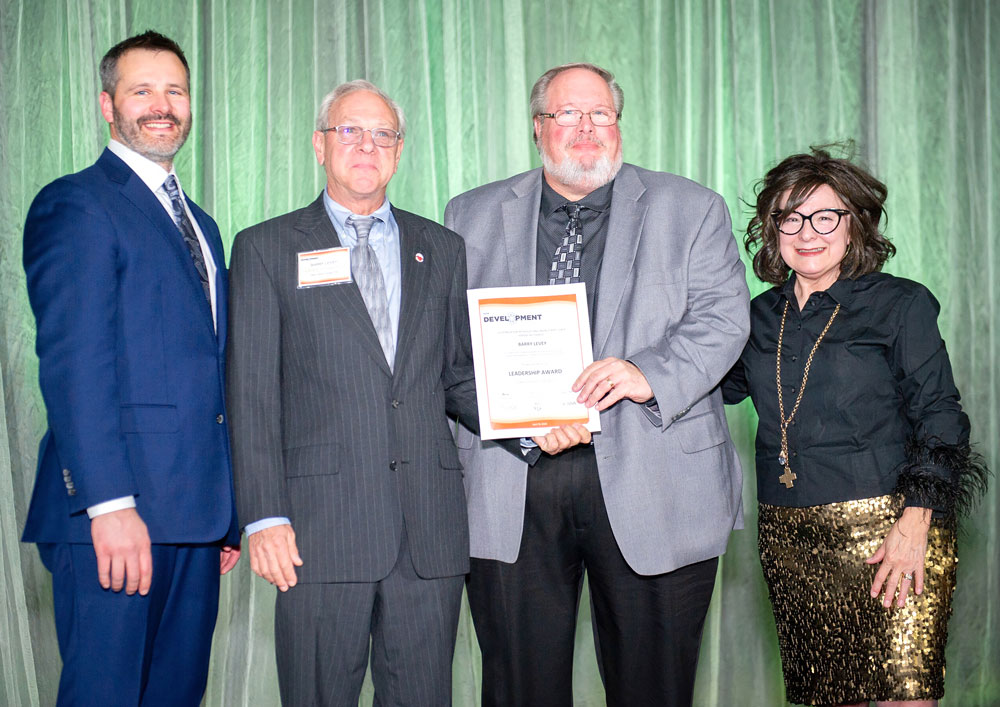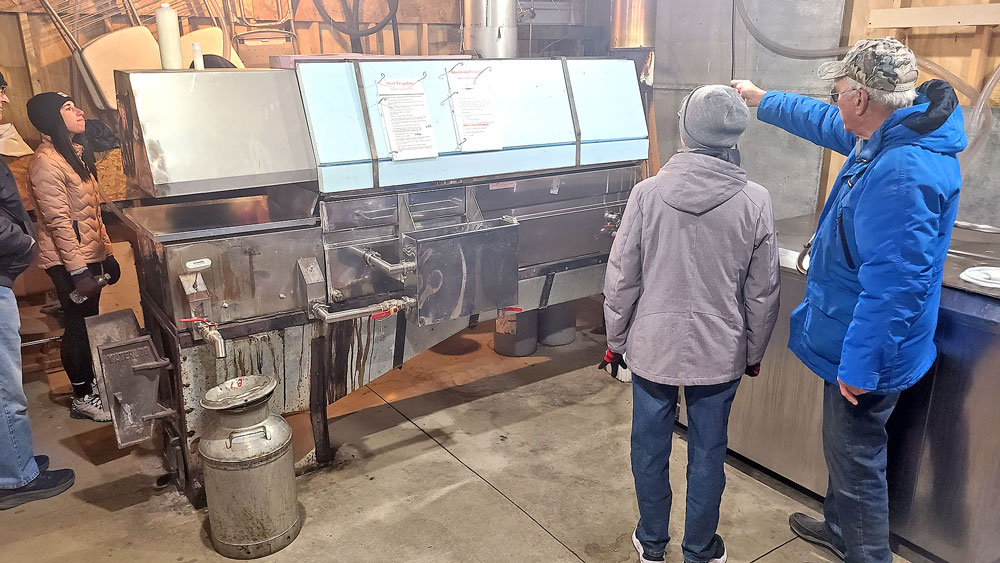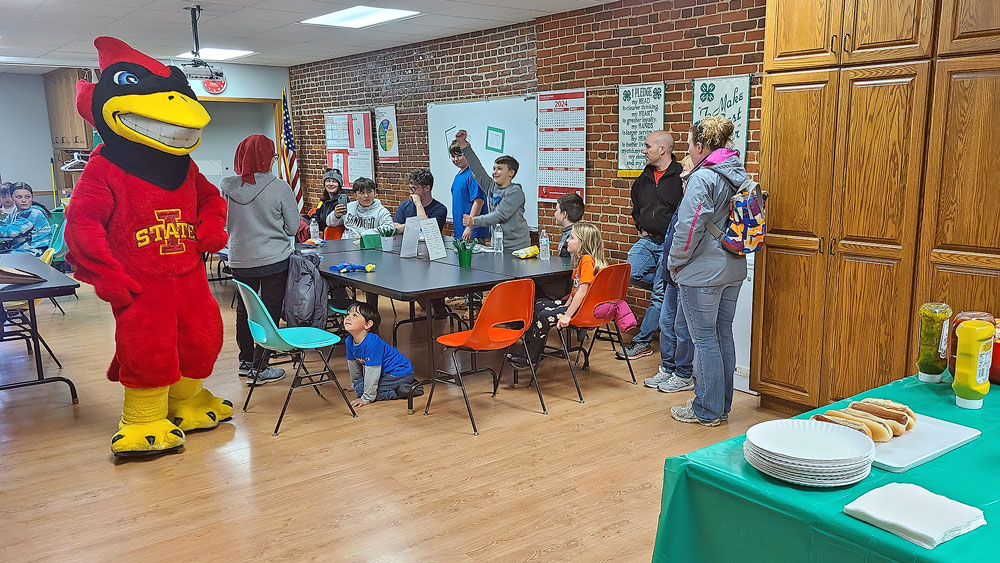Prichard and Brown field queries about education funding, property tax ‘backfill’
By James Grob, jgrob@charlescitypress.com
Iowa Sen. Waylon Brown, R-St. Ansgar, said that vouchers for private schools in Iowa is an issue that seems to come up every year.
“The vouchers — I’ll be perfectly honest — I’ve been hesitant on getting behind them,” Brown said. “I see value, but yet, we need to make sure we’re also protecting our public school system, which educates the majority of our kids.”
The issue came up on Saturday at a town hall discussion at the Floyd County Museum with Brown and Rep. Todd Prichard, D-Charles City. The event was sponsored by the Floyd County Farm Bureau, the Butler County REC and the Charles City Chamber of Commerce.
An Iowa Senate subcommittee advanced a measure last week that would use public education money for private schools and home schooling. The bill would provide students in grades K-12 “education savings grants” to pay for a nonpublic school or “competent private instruction,” more commonly known as home schooling. The grant would equal the average per-student amount the state pays each year for students at public schools.
“I’m against the voucher program,” Prichard said. “To me, the priority needs to be — before we talk about vouchers — to fully fund public schools, and we’re a long way from that, for sure.”
Prichard said the Iowa Legislature passed a 2 percent increase in school funding already this session, and although he was glad to see it get done, he thought the increase was too low.
“You can’t say that’s horrible, but it’s not enough, in my mind,” Prichard said. “I would have liked to have seen 3 percent.”
Prichard said he was pleased to see a transportation equity bill passed. The bipartisan bill will supplement busing costs that Prichard said will help rural districts.
The voucher bill passed out of the committee last Wednesday, 2-1, with two Republicans in support and one Democratic member opposed. The bill was sponsored by Sen. Jerry Behn, R-Boone, who said itwould provide parents opportunities for more involvement in their children’s education. He also said it would encourage competition among schools and lead to improvement.
Brown said he didn’t know if the bill would get any further traction.
“I don’t know if its going to move,” he said. “I see and hear both sides, but at the end of the day, we need to look out for what’s best for the whole.”
Brown said he prefers the Student Tuition Organization (STO) program over voucher programs.
“I like the STO Program, which allows parents to be able to put money into savings accounts for education,” Brown said. “Allow then to grow that nest egg.”
Prichard said that voucher programs take money from public schools that are already underfunded, and there other other programs that are better.
“There are a number of programs that have been in existence for a long time,” Prichard said. “There’s a grant for Iowa students who attend a private college in the state. There is support from the state for private busing and books. They’ve been pretty steady as far as what’s been allocated to those programs.”
The two state elected officials also fielded questions Saturday about Iowa’s “backfill” funding.
“I don’t think it’s going to be adjusted,” Brown said. “I think it’s fair to say, the backfill is an urban versus rural issue, flat out.”
In 2013, Iowa adopted property tax reform legislation that was then hailed as “the largest property tax cut in Iowa’s history.” That legislation included a promise to soften the negative impacts on cities, counties and schools by adding “backfill” provisions to replace a portion of their reduced property tax revenue.
However, there has been talk that the state government might stop providing the backfill payments in order to meet other budget necessities, which could put communities in a precarious position.
“They called it property tax relief. It was a property tax shift,” Charles City Mayor Dean Andrews told Brown and Prichard on Saturday. “I hope you don’t eliminate it at all, but if you do start to eliminate it, I hope it’s for next year, because our budget is already set for this year. I hope they don’t take $170,000 out of our budget.”
Prichard said that backfill funding has been one of the “quiet white elephants in the room” that hasn’t been talked about a lot. He said that will change by the end of March.
“The budget did not shrink this year, it expanded by about 2 percent, so that’s good,” Prichard said. “My fear is that if budgets don’t meet expectations and revenue falls off, then the backfill will get ignored again.”
Prichard said backfill has become a bigger burden for the state than what was originally anticipated, and there’s been talk over the years that the state can’t sustain it.
“The question is, how is a city going to make its budget without the funding it’s depending on from the state?” Prichard asked.
“Don’t impose on our budgets that have already been set,” Andrews said. “At least give us a year warning.”
Brown said that backfill creates a big disadvantage for smaller communities.
“Our larger counties such as Polk and Johnson county have exceeded what they were bringing in on that commercial property tax than what they were before the backfill was implemented,” Brown said. “We are not going to be able to say the same thing about our rural counties. To do a blanket repeal of the backfill is going to be detrimental to rural Iowa.”
Prichard said the original backfill legislation was too vague and ill-defined.
“The problem with the original tax bill was that we should have capped what that relief would look like. We should have defined it instead of left it wide open,” Prichard said. “So there needs to be adjustments to that property tax regime that haven’t been discussed.”









Social Share